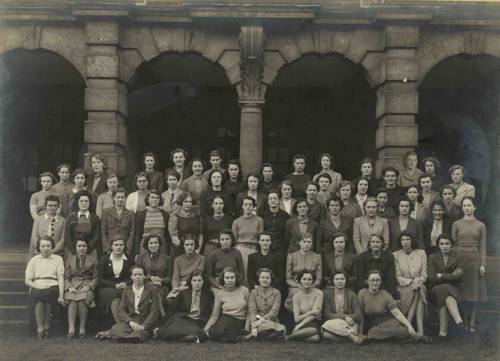
FAQ About Philippa Foot

Who was Philippa Foot?
Philippa Foot was a British philosopher best known for her influential work in ethics. She was a prominent figure in the development of virtue ethics and introduced famous thought experiments such as the trolley problem. Throughout her career, she sought to understand moral dilemmas and the nature of moral judgments.

What is Philippa Foot most famous for?
Philippa Foot is most famous for her contributions to virtue ethics and for creating the trolley problem, a thought experiment that questions the morality of decisions and actions in life-and-death scenarios. Her work greatly influenced ethical theory and moral philosophy throughout the 20th century.

What is the trolley problem, and what does it illustrate?
The trolley problem is a thought experiment devised by Philippa Foot to explore ethical dilemmas. It presents a scenario where a runaway trolley is headed towards five people tied up on the tracks, and an observer can pull a lever to switch the trolley onto another track where it will hit one person instead. The problem highlights conflicts between utilitarian ethics (saving the greatest number) and deontological ethics (respecting moral rules).

How did Philippa Foot contribute to virtue ethics?
Philippa Foot significantly contributed to virtue ethics by advocating for an approach to morality that emphasizes moral character and virtues rather than rules or consequences. She argued that virtues are essential qualities for living a morally good life, revisiting classical ideas on ethics and bringing them into contemporary philosophical discourse.

What other philosophers influenced Philippa Foot's work?
Philippa Foot was influenced by classical philosophers such as Aristotle, whose work on virtue ethics she expanded upon. She was also inspired by her contemporaries at the time, including Elizabeth Anscombe, a close colleague. Together, they worked on redefining moral philosophy by focusing on character and motives over actions.

Did Philippa Foot write any books?
Yes, Philippa Foot authored several important books and papers. Notably, her book "Natural Goodness" explores the foundations of ethical naturalism by examining how human life and virtuous action relate to the natural world. Another significant work is "Virtues and Vices," a collection of essays that discusses various aspects of ethical theory.

Where did Philippa Foot receive her education?
Philippa Foot received her education at Somerville College, Oxford, where she later taught and became a prominent faculty member. She maintained a strong academic presence in both the UK and the US, influencing many students and fellow philosophers with her innovative ideas in ethics.

What is virtue ethics, and how does it differ from other ethical theories?
Virtue ethics is an approach to moral philosophy that emphasizes the development of virtuous character traits like courage, honesty, and compassion. Unlike deontological ethics, which focuses on rules, or utilitarianism, which considers the outcomes of actions, virtue ethics centers on the moral agent's character and intentions. Philippa Foot's work in this field stresses the importance of living a virtuous life to achieve moral good.

What are some common criticisms of Philippa Foot's work?
Common criticisms of Philippa Foot's work often focus on the perceived subjectivity and vagueness in defining virtues within virtue ethics. Critics argue that without clear rules, it can be challenging to determine what constitutes a virtue, potentially leading to inconsistent moral judgments. Additionally, some debate her reliance on human nature to define good and virtuous behavior.

How did Philippa Foot's work impact modern philosophy?
Philippa Foot's work had a profound impact on modern philosophy by reviving interest in virtue ethics during a time when consequentialist and deontological theories dominated. Her ability to merge classical philosophical views with contemporary concerns helped shape discussions about morality, ethics, and human nature. The trolley problem, in particular, continues to serve as a critical tool for exploring moral dilemmas and ethical reasoning.

What is the significance of the trolley problem in ethical debates?
The trolley problem is significant in ethical debates because it offers a simplified model for examining moral choices involving life-and-death decisions. It allows philosophers and ethicists to analyze the implications of utilitarian versus deontological principles, such as whether it's justifiable to harm one person to save five. This thought experiment remains a valuable tool for understanding complex moral issues.

Did Philippa Foot have any notable collaborations with other philosophers?
Yes, Philippa Foot collaborated with several notable philosophers, including Elizabeth Anscombe, Mary Midgley, and Iris Murdoch. Together, they were part of the four women philosophers known as the "Oxford Four," who significantly contributed to moral philosophy, challenging prevailing ethical theories and advocating for a return to virtue-based ethics.

How did the public and academic community receive Philippa Foot's ideas?
Philippa Foot's ideas were well-received within the academic community, garnering respect for her rigorous analysis and innovative approach to ethics. Her work initiated debates and inspired further research in virtue ethics. While some of her ideas, like virtue ethics, faced critique for lacking specificity, they nonetheless sparked insightful discussions and renewed interest in moral philosophy.

Are there any practical applications of Philippa Foot's ethical theories?
Philippa Foot's ethical theories offer practical applications in various fields, such as moral education, business ethics, and healthcare. By focusing on virtues, professionals and educators can promote ethical behavior and decision-making essential for personal development and responsible practices. Her ideas encourage individuals to cultivate character and moral excellence in everyday life.

What is ethical naturalism, and how does it relate to Foot's work?
Ethical naturalism, as advocated by Philippa Foot, is the view that moral truths are derived from the natural facts about human life and well-being. Foot argued that ethical judgments should align with the needs and nature of human beings, thus providing an objective basis for morality. Her work in "Natural Goodness" elaborates on this concept by connecting virtues with the biological and social requirements of human life.

Did Philippa Foot's philosophical views evolve over her career?
Over her career, Philippa Foot's philosophical views evolved as she further developed her ideas about virtue ethics and ethical naturalism. While her early work focused on critiquing and expanding the ideas of her predecessors, her later writings, such as "Natural Goodness," reflect a deeper commitment to understanding ethics through the lens of human nature and biology.

What legacy did Philippa Foot leave in philosophy?
Philippa Foot left a lasting legacy in philosophy through her revival and development of virtue ethics and her introduction of influential thought experiments like the trolley problem. Her work continues to inspire and challenge philosophers, academics, and students to explore ethical questions involving character, virtue, and moral reasoning.

Are there any films or documentaries about Philippa Foot?
While there are no widely known films or documentaries solely focused on Philippa Foot, her contributions to philosophy, especially the trolley problem, are often discussed in academic and popular media examining ethical theories. Various philosophical discussions on virtue ethics and related topics feature her work, demonstrating the lasting influence of her ideas.

What awards or honors did Philippa Foot receive for her work?
Throughout her career, Philippa Foot received numerous accolades and honors, though she focused more on her academic pursuits than on accumulating awards. Her influence is perhaps best measured by the respect she garnered from peers and the continued relevance of her ideas in philosophical discourse rather than formal recognitions.

How is Philippa Foot's work relevant to contemporary ethical issues?
Philippa Foot's work remains highly relevant to contemporary ethical issues by providing a framework for addressing moral questions through the lens of virtue and character. Her theories help navigate complex dilemmas in modern contexts, such as technology, healthcare, and environmental ethics, encouraging individuals and societies to prioritize virtuous actions and moral integrity.
